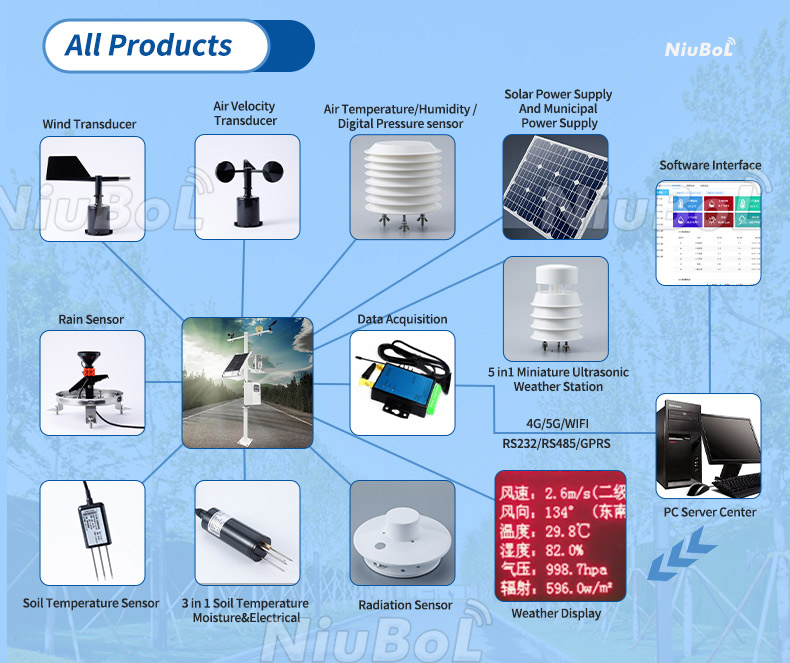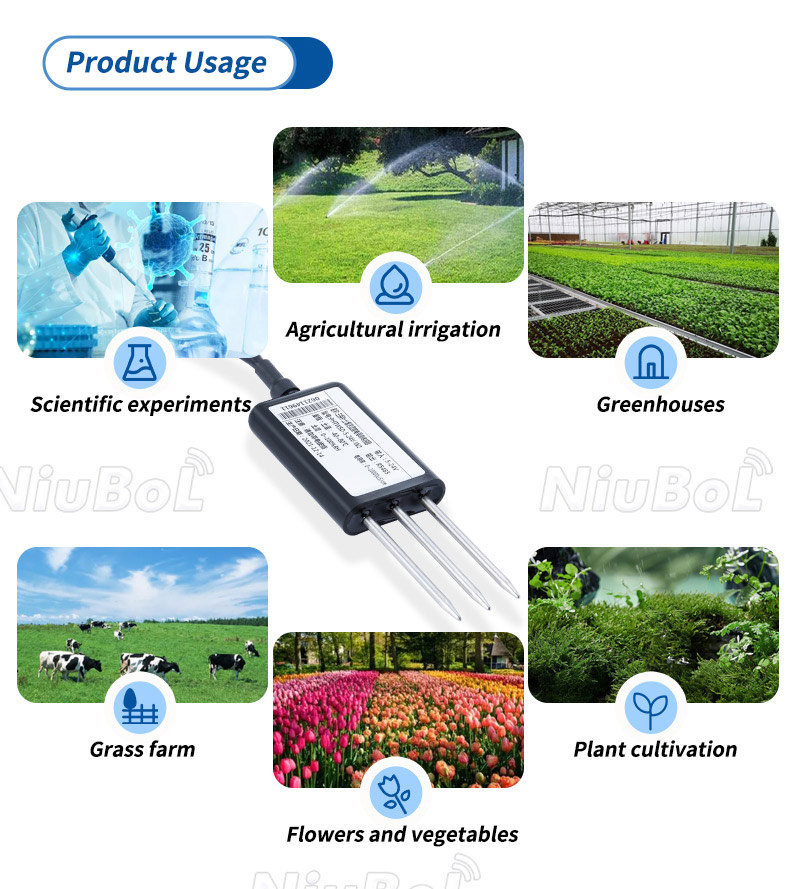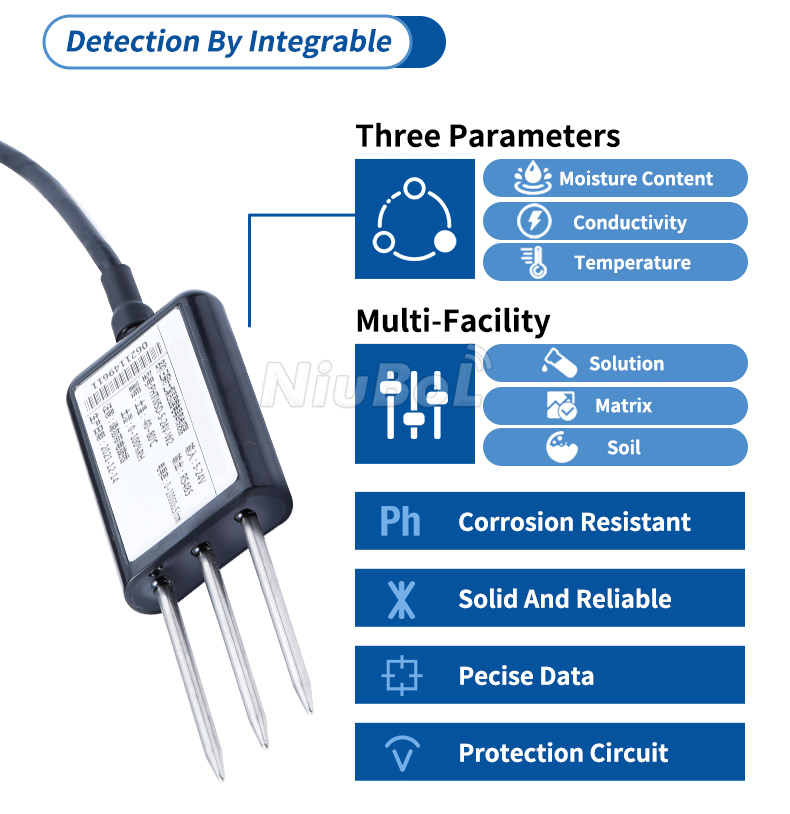

— Blogs —
—Products—
 Consumer hotline +8618073152920
Consumer hotline +8618073152920 WhatsApp:+8615367865107
Address:Room 102, District D, Houhu Industrial Park, Yuelu District, Changsha City, Hunan Province, China
Product knowledge
Time:2022-05-18 19:57:01 Popularity:1622
Methods of Measuring Soil Moisture
Soil is one of the natural resources that human beings depend on for survival and the basis for plant growth and development. The state of soil environment is closely related to the survival and reproduction of human society. In addition to hydroponic plants, soil water is the main source of water absorption by plants. The dissolution and absorption of various fertilizers in the soil, and the decomposition and transformation of organic matter are also closely related to the content of soil water.

The measure of soil moisture is soil moisture content, which is the percentage of water weight to soil weight. Determining soil water content and grasping the water demand of crops is of great significance to agricultural production. At present, the methods for measuring soil moisture include drying weighing method, tensiometer method, resistance method, neutron method, r-ray method, standing wave ratio method, optical method, time domain reflectometry (TDR) and high frequency oscillation method ( FDR) etc. Among them, the more common and simple methods are drying method and resistance method.

TDR method:
The Chinese name of TDR is Time Domain Reflectometry, which is a soil moisture measurement method developed in the 1980s. This method is very common in foreign countries. In China, it has only been introduced in recent years, but it has been paid attention to by various departments immediately after its introduction. TDR time-domain transmission is a common way to quickly monitor soil moisture. The principle is that the waveform on a mismatched transmission line will transmit, and the waveform at any point on the transmission line is the superposition of the original waveform and the transmitted waveform. The response time of the equipment based on the TDR principle is about 10-20 seconds, which is suitable for mobile measurement and fixed-point monitoring.
TDR has strong independence, and its results are basically not affected by environmental factors such as soil type, density, and temperature. In addition, there is another important point: TDR can measure soil moisture under freezing, which is unmatched by other methods. In addition, TDR can monitor soil water and salt content at the same time, and there is almost no difference between the results of the two measurements before and after. The precision of this assay is evident.
FDR method:
The Chinese name of the FDR method is the high-frequency oscillation method, and the birth time of FDR is slightly later than that of TDR. At first, because of the high cost of TDR equipment, foreign companies such as AquaSPY and Sentek developed FDR in order to find a simpler method than TDR to measure the dielectric constant of soil; FDR is not only cheaper than TDR, but also has a shorter measurement time. After a specific soil calibration, the measurement accuracy is high, and the shape of the probe is not limited. It can measure multiple depths at the same time, and data acquisition is easier to achieve.
The FDR method adopts the working principle of electromagnetic pulse, and measures the apparent dielectric constant of the soil according to the propagation frequency of the electromagnetic wave in the medium, thereby obtaining the soil volumetric water content.

Drying method:
The drying method is an extremely common and standard method for determining soil moisture. Specifically: obtain a certain amount of soil from the field, and then put it in an oven at 105 ° C and wait for drying. Among them, the standard of drying is that the two weighings before and after are constant. The moisture lost after drying is the moisture content of the soil. The calculation formula is soil water content=W/M*100%, M is the soil weight before drying, W is the weight of soil moisture, that is, the difference between M and the soil weight M' after drying.
Resistance method:
The electrical resistance method utilizes the electrical resistance of gypsum, nylon, glass fiber, etc. and their water content. When these intermediates plus electrodes are placed in moist soil, and after a period of time, the moisture content of these things reaches equilibrium. Due to the relationship between resistance and water content, we previously calibrated a certain correspondence between resistance and percentage, and then through these components, we can obtain moisture readings in the range of 1 to 15 atmospheres of suction.
The values measured by the drying method are accurate, but have the disadvantage of poor real-time performance. If we want to measure quickly, we can consider the soil temperature and humidity sensor. The soil temperature and humidity sensor has two monitoring principles: Time Domain Reflectometry (TDR) or High Frequency Oscillation (FDR), which can provide more accurate soil moisture content in real time.
Soil moisture monitoring is now not only used in agricultural soil moisture detection, but also in many engineering buildings such as railways, highways, hydropower stations, channels, houses, etc., the soil moisture status is also essential information. When we need accurate data and enough time, we can choose the traditional drying method. If you want to know the soil moisture in real time, you can choose the soil moisture sensor (TDR/FDR).
Related recommendations
Sensors & Weather Stations Catalog
Agriculture Sensors and Weather Stations Catalog-NiuBoL.pdf
Weather Stations Catalog-NiuBoL.pdf
Related products
 Combined air temperature and relative humidity sensor
Combined air temperature and relative humidity sensor Soil Moisture Temperature sensor for irrigation
Soil Moisture Temperature sensor for irrigation Soil pH sensor RS485 soil Testing instrument soil ph meter for agriculture
Soil pH sensor RS485 soil Testing instrument soil ph meter for agriculture Wind Speed sensor Output Modbus/RS485/Analog/0-5V/4-20mA
Wind Speed sensor Output Modbus/RS485/Analog/0-5V/4-20mA Tipping bucket rain gauge for weather monitoring auto rainfall sensor RS485/Outdoor/stainless steel
Tipping bucket rain gauge for weather monitoring auto rainfall sensor RS485/Outdoor/stainless steel Pyranometer Solar Radiation Sensor 4-20mA/RS485
Pyranometer Solar Radiation Sensor 4-20mA/RS485
Screenshot, WhatsApp to identify the QR code
WhatsApp number:+8615367865107
(Click on WhatsApp to copy and add friends)